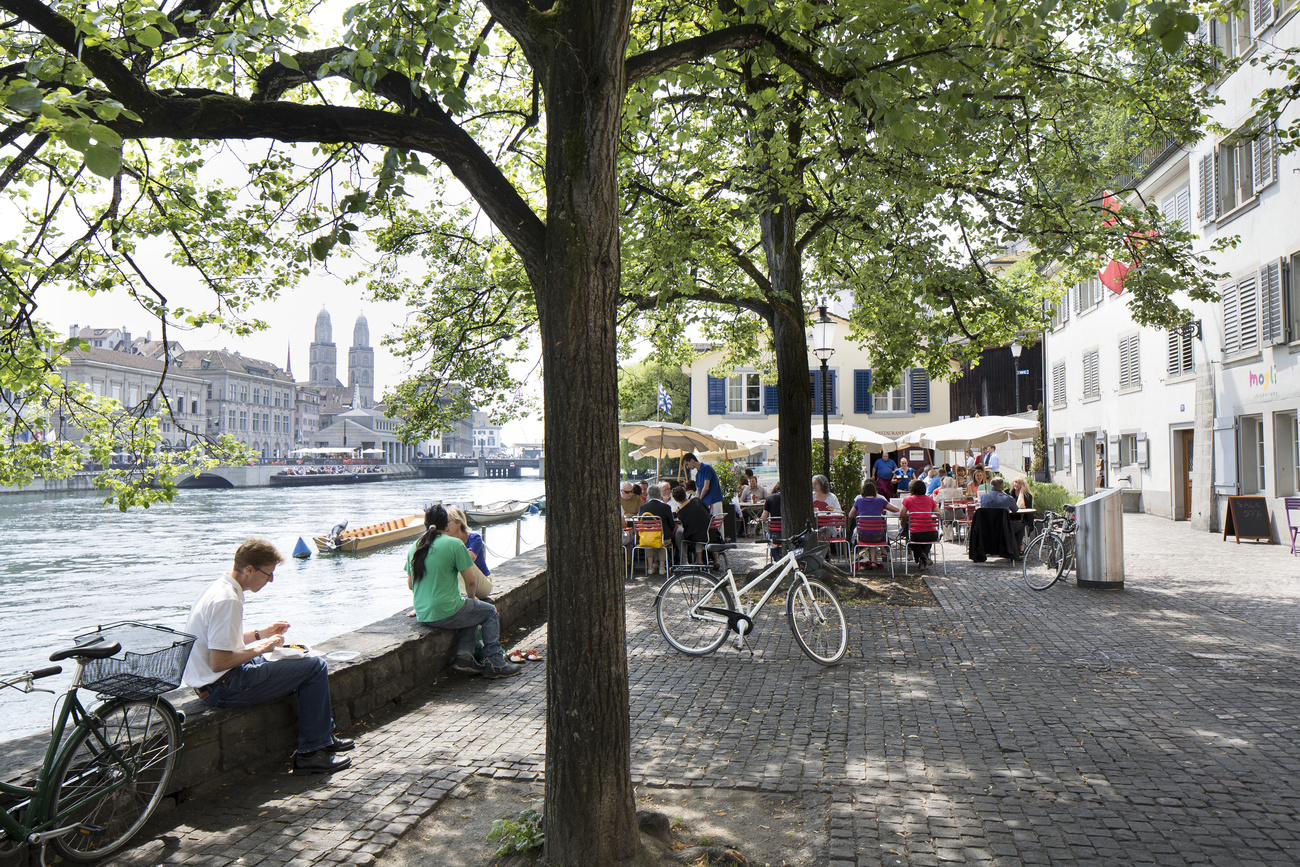Eco-tourism to end Toggenburg’s troubles

Anyone travelling to Toggenburg is asked to use their ears as much as their eyes, if they are to appreciate the beauty of the eastern region.
The people of Toggenburg want the long, verdant valley to be known for quality eco-tourism above all else – and music will play a small but important part.
The authorities in the towns and villages dotted along the valley are taking part in a pilot project sponsored by the federal government to boost the stagnating rural alpine economy and protect the environment at the same time.
Toggenburg hopes to become a “landscape park” when the label, criteria and funding are approved by the federal parliament. This would enable Toggenburg to use the label to sell low-impact tourism and homegrown products – including traditional music.
Sound world
A project, entitled “Sound World”, is scheduled to get off the ground next year. Based at a still-to-be-built “Sound House”, visitors can take music courses and wander along musical mountain trails where instruments set up along the path will be waiting to be played. There will also be an international music festival every other year.
“The project, Sound World in Toggenburg, is based on the old tradition that people used to sing in their daily lives,” says hotelier Roland Stump, who is one of the initiators of the project.
“The local farmers used to yodel when they called their cows. They would yodel to bring the cows up or down from a mountain pasture,” explains Stump.
“The cow bells are also part of this ‘sound’ tradition. It’s the natural sound tradition in this valley which connects us to other cultures around the world. The language of sound doesn’t need any translation.”
Shingled farmhouses
Any hike through the mountain pastures in the Toggenburg countryside takes you past tidy, shingled farmhouses, dwarfed by the toothed peaks of the Churfirsten mountains looming in the background.
It is clear that a newly defined category of park, in a country as densely populated as Switzerland, is aimed as much at protecting people’s traditions as it does nature.
The idea for the new parks is the brainchild of the Swiss Federal Office for the Environment and the environmental consultancy office, Alpenbüro.
“Farming has a long tradition in the Alps. The Alps are not a wilderness but are inhabited by man,” says Dominik Siegrist, who heads Alpenbüro as well as the Swiss branch of Cipra, the International Commission to Protect the Alps.
Man and nature
“So when we speak of nature protection in Switzerland, we always speak of a protection which involves man,” he adds.
The type of protection he envisages would allow for low impact tourism. In Toggenburg, this amounts to farm holidays, theme trails like the Sound Path, mountain biking on carefully selected routes and snowshoeing in winter.
Siegrist believes that unless action is taken soon, the people of Toggenburg will abandon the region and search for better opportunities in Switzerland’s cities. The migration has already begun as jobs in traditional fields disappear and agricultural subsidies are slashed.
Mountain farmers simply cannot compete in the global marketplace, concludes Siegrist.
That well-known fact is more alarming since about 15 per cent of the Toggenburg workforce is still employed in agriculture, mostly working on small family farms. The rate is three times higher than the Swiss average.
At a time of increasing globalisation, the hour has come for Toggenburg and other mountain regions to choose a new, sustainable course for the future.
by Dale Bechtel

In compliance with the JTI standards
More: SWI swissinfo.ch certified by the Journalism Trust Initiative









You can find an overview of ongoing debates with our journalists here . Please join us!
If you want to start a conversation about a topic raised in this article or want to report factual errors, email us at english@swissinfo.ch.